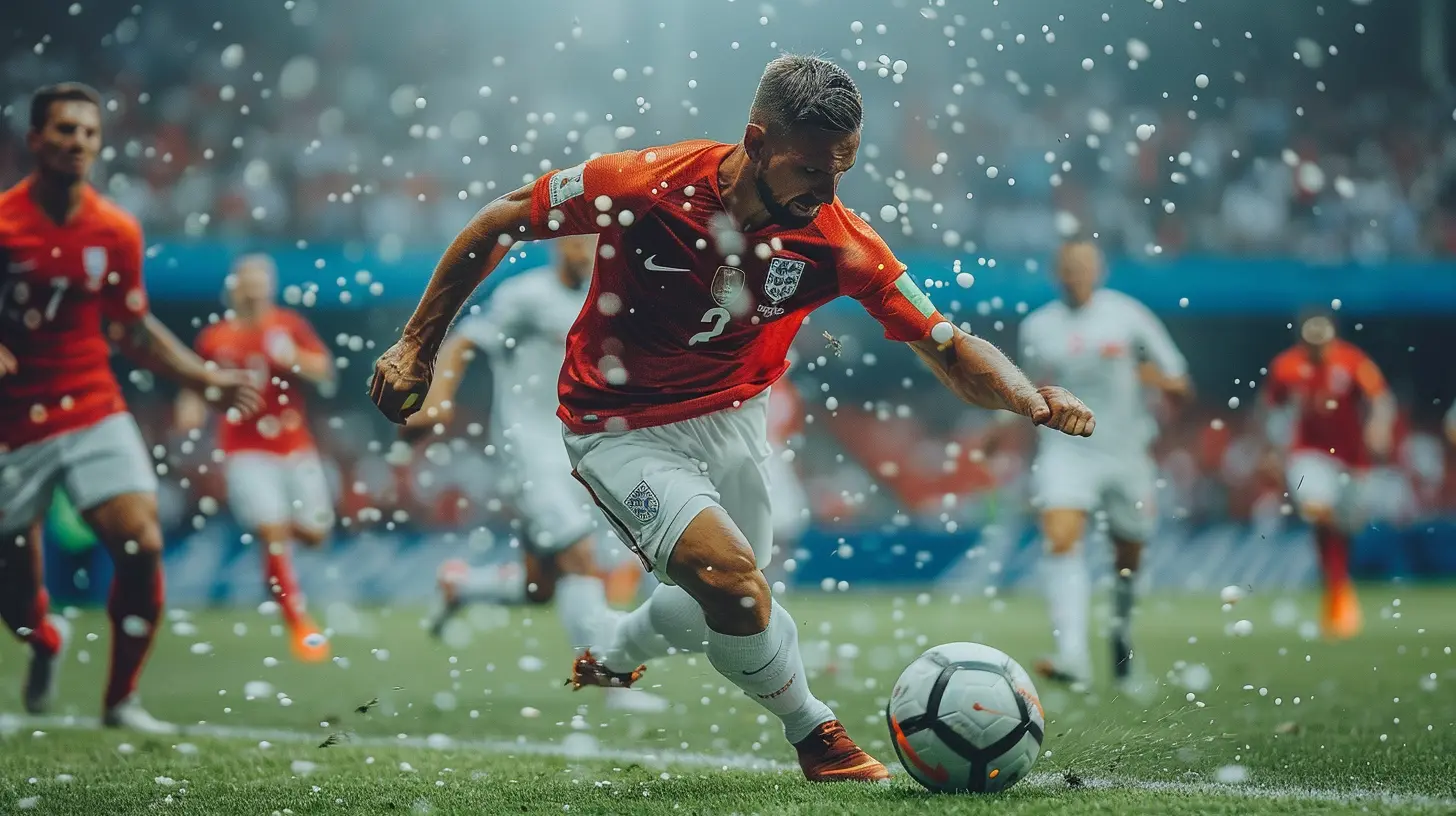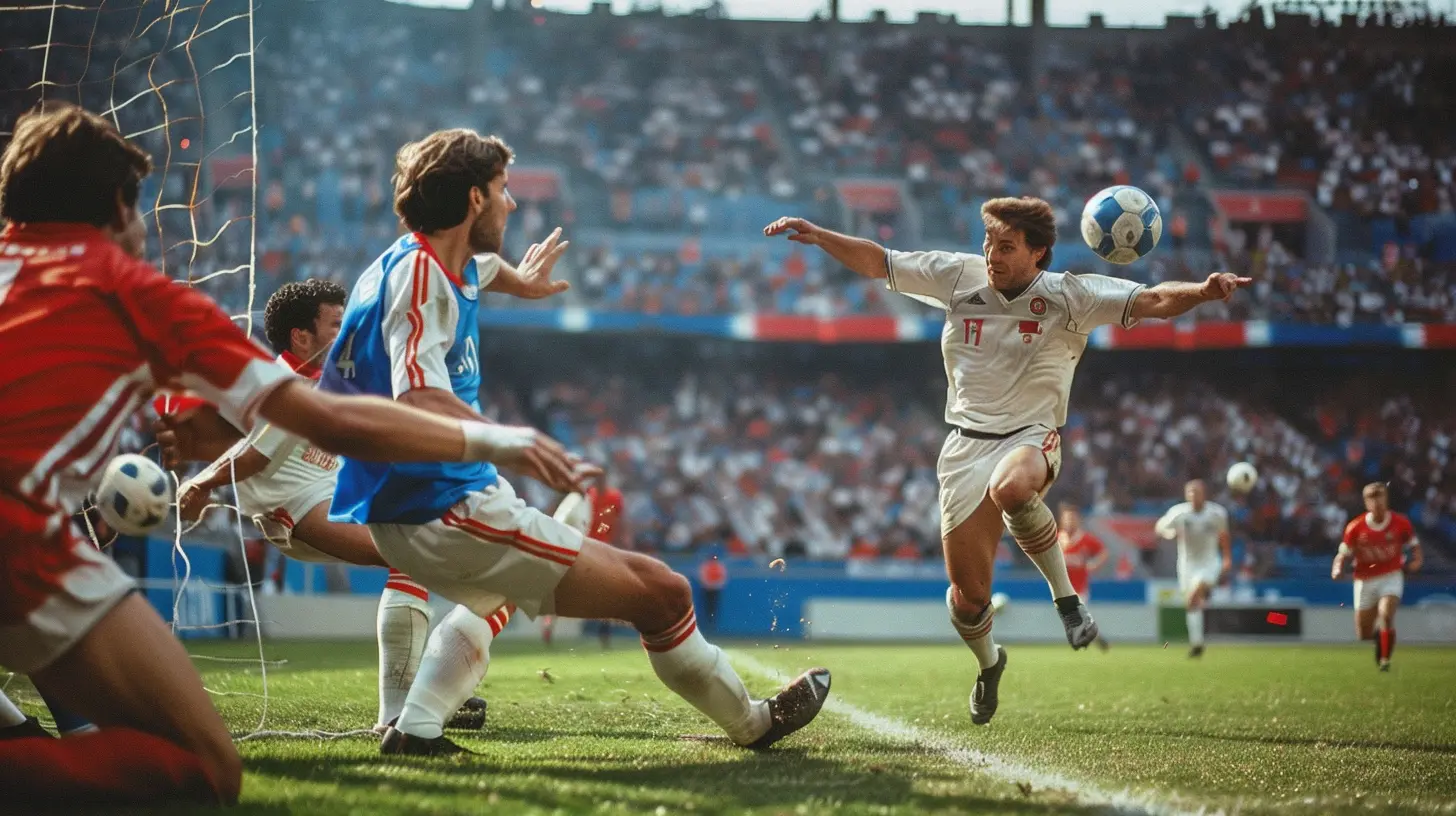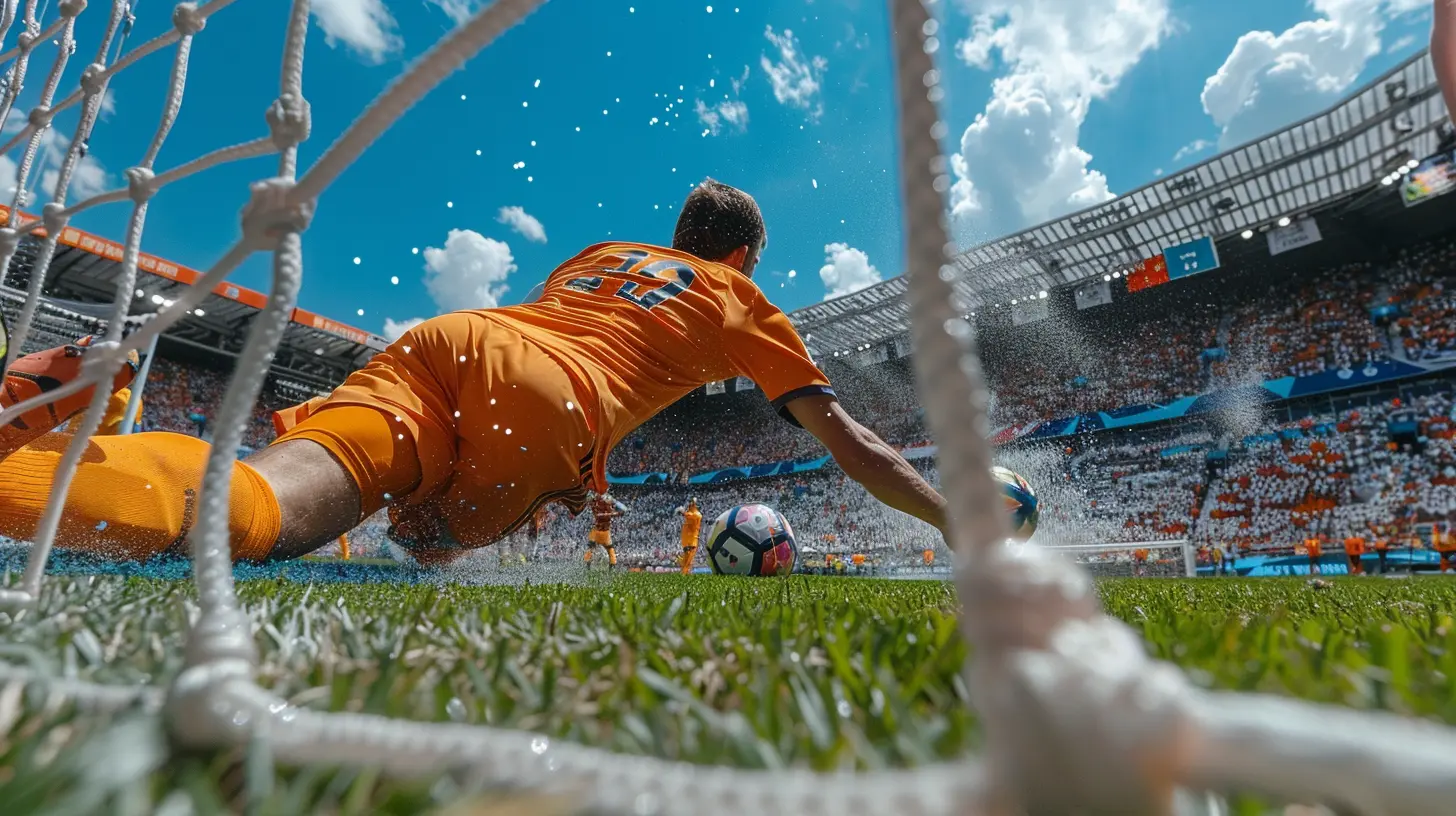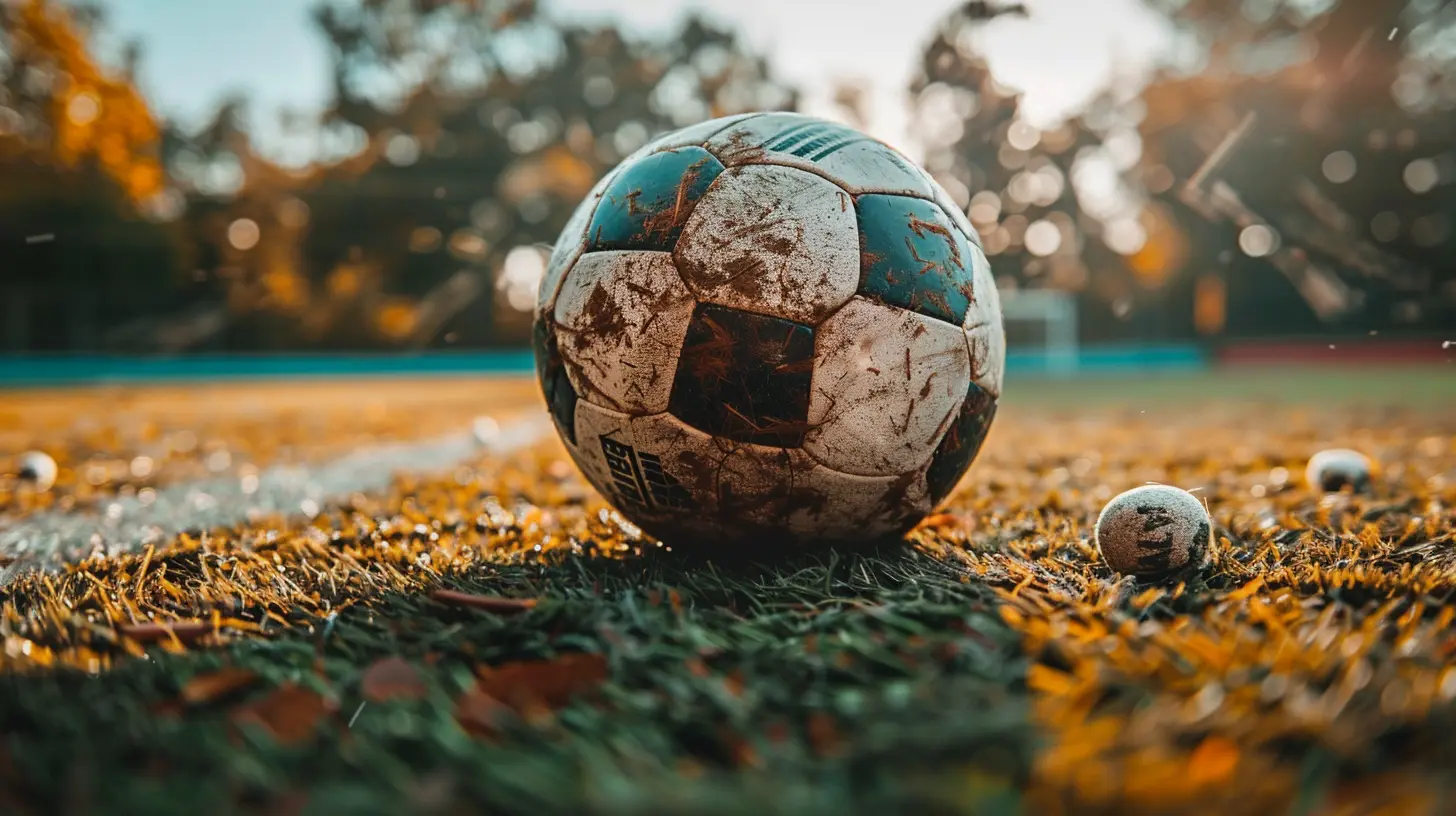The Psychology of Penalty Shootouts: Staying Cool Under Pressure
9 January 2025
Penalty shootouts. Just saying those two words can give soccer fans, players, and coaches a nervous chill down their spine. It’s a moment where the entire game boils down to a single kick. No matter how well or poorly the match has gone, it’s all about those few seconds when the ball is placed on the penalty spot, and it’s just you, the goalkeeper, and the eyes of millions watching. Easy, right?
But here’s the deal – penalty shootouts are more than just about how well you can strike the ball. It’s a mental game. It’s about staying cool under pressure, battling your inner demons, and keeping your nerve when everything around you is screaming chaos. In this article, we’ll dive deep into the psychology behind penalty shootouts and explore what it takes to remain calm when the stakes are at their highest.

What Makes Penalty Shootouts So Stressful?
Penalty shootouts are like the ultimate test of composure. It’s not just about skill; it’s about handling the enormous weight of expectation. But why are they so stressful? Let’s break it down.1. High Stakes, Sky-High Pressure
In a penalty shootout, everything is on the line. There’s no second chance. If you miss, the consequences could be devastating. Imagine you’re a player in the World Cup final. The score is tied, and it’s your turn to take the shot. The entire nation’s hopes rest on your shoulders. It’s no wonder your heart is racing, your palms are sweating, and your legs feel like jelly.The stakes are enormous. One wrong move, and you could be the villain of the match. But if you score, you’re the hero. This extreme pressure can cause even the most seasoned professionals to buckle.
2. Time Slows Down
When you’re standing over the ball, it feels like time stands still. Every second feels like an eternity. The crowd is hushed, the referee’s whistle pierces the air, and you can almost hear your own heartbeat. In these moments, the mind can play tricks on you. Doubt creeps in. Overthinking takes over.You start questioning everything: “Am I aiming too high? What if the keeper guesses the right direction? Should I go for power or placement?” It’s a mental minefield, and without the right mindset, it’s easy to get lost.
3. All Eyes On You
Let’s face it – being the center of attention can be nerve-wracking. When taking a penalty, every eye in the stadium and on the screen is locked on you. It’s not just your teammates or the fans; it’s also the millions of people watching worldwide. That’s a lot of eyeballs!This kind of attention can lead to what psychologists call “performance anxiety.” You want to perform well, but the fear of messing up can paralyze you. The pressure to live up to expectations can become overwhelming, and the more you try to focus, the harder it becomes.

The Fight-Or-Flight Response in Penalty Shootouts
Penalty shootouts trigger a biological reaction in the body – the fight-or-flight response. This is our body’s natural reaction to danger. While it was more useful when humans were running from saber-toothed tigers, it’s not so helpful when you’re trying to calmly slot a ball into the net.1. Adrenaline Rush
When you’re under pressure, your body releases adrenaline, which can either help or hinder you. On the one hand, it can sharpen your focus and give you a burst of energy. On the other hand, it can make you feel jittery and anxious.Ever notice how some players rush their penalty kicks? That’s often because they’re trying to release the built-up tension and adrenaline coursing through their body. But rushing can lead to mistakes, which is why the calmest penalty takers are often the most successful.
2. Muscle Tension
Anxiety doesn’t just affect your mind; it also impacts your body. When you’re stressed, your muscles tense up, which can affect your ability to strike the ball cleanly. Your legs might feel heavy, and your movements may become less fluid. This is why relaxation techniques are crucial for penalty takers. Loosening up those muscles can make all the difference.
The Role of Confidence in Penalty Success
Confidence is a game-changer when it comes to penalty shootouts. Players with high self-belief are more likely to succeed because they trust their abilities and don’t second-guess themselves. But how do you build that confidence?1. Preparation Is Key
One of the best ways to boost confidence is through preparation. Players who have practiced countless penalties in training are more likely to feel comfortable when it’s time to take the real thing. Muscle memory kicks in, and they can rely on their training to guide them.Think about it like studying for an exam. If you’ve studied hard, you walk into the test room feeling confident. But if you’ve slacked off, you’re more likely to panic. The same principle applies to penalties. The more you practice, the more prepared you’ll feel.
2. Visualization Techniques
Many top players use visualization techniques to build confidence. Before stepping up to take the penalty, they mentally rehearse the perfect kick in their heads. They imagine the ball hitting the back of the net, the roar of the crowd, and the feeling of success.This technique helps players stay positive and focused, blocking out the negative thoughts that can creep in. It’s like creating a mental highlight reel that you can replay over and over again until it feels like second nature.

The Goalkeeper's Mind Games
Penalty shootouts aren’t just psychological battles for the takers – goalkeepers play mind games too. In fact, goalkeepers have one of the toughest jobs in soccer during a shootout, and they often use psychological tactics to gain an advantage.1. The Power of Distraction
Goalkeepers know they need to get into the heads of the penalty takers. One common tactic is to delay the shot by standing slightly off their line or engaging in subtle movements. This forces the shooter to wait longer, giving them more time to overthink and doubt their decision.Some goalkeepers even use verbal taunts or gestures to throw off their opponents. It’s all part of the psychological warfare that comes with penalty shootouts.
2. Guesswork and Reading Body Language
While penalty takers are battling their own nerves, goalkeepers are trying to read their opponents’ body language and predict where the ball is going. They look for subtle clues like the angle of the approach, the position of the standing foot, and even the direction of the eyes.While it’s often a guessing game, experienced goalkeepers can improve their chances by analyzing the kicker’s habits and tendencies. Some keepers even study videos of their opponents’ previous penalties to identify patterns.
Strategies for Staying Cool Under Pressure
So, how do the best players in the world keep their cool when the pressure is at its peak? Let’s look at some strategies that can help players – and even you in your daily life – manage nerves and perform under pressure.1. Deep Breathing
One of the simplest and most effective techniques for calming the mind and body is deep breathing. By taking slow, deep breaths, players can lower their heart rate and reduce anxiety. It’s like hitting the reset button before stepping up to take the shot.Next time you’re in a stressful situation, try it out. Close your eyes, take a deep breath in through your nose, hold it for a few seconds, and exhale slowly through your mouth. You’ll feel an immediate sense of calm.
2. Focus on the Process, Not the Outcome
Many players get caught up in thinking about the consequences of missing the penalty. But the trick is to focus on the process instead. Top penalty takers concentrate on their technique, their run-up, and their strike. By focusing on what they can control, they block out the fear of failure.This mindset shift is crucial. If you’re too focused on the outcome, you’re more likely to slip up. But if you stay in the moment and trust your skills, the chances of success increase.
3. Positive Self-Talk
What you say to yourself matters. Players who engage in positive self-talk are more likely to succeed in high-pressure situations. Instead of thinking, “I can’t miss,” they tell themselves, “I’m going to score.” This shift in mindset can have a huge impact on performance.Positive self-talk isn’t just for athletes – it’s something we can all use in our daily lives. The next time you’re faced with a challenge, try replacing negative thoughts with positive affirmations. You’d be surprised at how much it helps.
Final Whistle: The Power of Mental Toughness
At the end of the day, penalty shootouts are the ultimate test of mental toughness. It’s not just about who has the best footwork or the most powerful shot. It’s about who can stay cool under pressure, block out the noise, and focus on the task at hand.The psychology of penalty shootouts is a fascinating blend of confidence, preparation, and mental resilience. Whether you’re a player standing at the penalty spot or someone facing pressure in your daily life, the lessons from the soccer field can apply to you. Stay calm, trust yourself, and remember – it’s just a game.
all images in this post were generated using AI tools
Category:
SoccerAuthor:

Fernando Franklin
Discussion
rate this article
19 comments
Thalyn McClary
In the dance of nerves and fate, Where heartbeat echoes, players wait. With steel resolve and sharpened gaze, They navigate the pressure's maze. In those fleeting moments, champions rise, Crafting glory beneath stormy skies.
February 16, 2025 at 8:50 PM

Fernando Franklin
Thank you for your poetic reflection! It beautifully captures the intense emotions and mental fortitude essential during penalty shootouts.
Nadine Sheppard
Great insights on mental resilience! Thanks!
February 2, 2025 at 4:06 AM

Fernando Franklin
Thank you! I'm glad you found it insightful!
Zayden Johnson
Great article! The mental aspect of penalty shootouts is often overlooked. It’s fascinating how pressure can either break a player or elevate their performance. Understanding the psychology behind it can really help teams prepare better. Definitely a crucial part of the game!
January 30, 2025 at 1:47 PM

Fernando Franklin
Thank you! I'm glad you found the article insightful. The mental aspect is indeed crucial in penalty shootouts, and understanding it can make all the difference for players.
Haven Curry
Ninja focus or banana slip? Choose wisely!" 🍌🥷
January 26, 2025 at 5:17 AM

Fernando Franklin
Definitely ninja focus! Staying calm under pressure is key to scoring in a shootout." 🥷✨
Nicole Perez
Mindset’s magic: clutch moments carve legends.
January 21, 2025 at 5:25 AM

Fernando Franklin
Absolutely! It's the mindset that transforms pressure into opportunity, turning ordinary players into legends during high-stakes moments.
Heath McMaster
Excellent insights into the psychological challenges of penalty shootouts! Understanding the mental aspect is crucial for players to perform effectively under pressure. Great read!
January 19, 2025 at 11:36 AM

Fernando Franklin
Thank you for your thoughtful comment! I'm glad you found the insights valuable. Understanding the mental game is indeed key to performance.
Vincent McQuillen
Understanding the psychological factors behind penalty shootouts can significantly enhance a player's performance, making mental resilience as crucial as skill.
January 16, 2025 at 9:24 PM

Fernando Franklin
Absolutely! Mental resilience plays a vital role in penalty shootouts, complementing technical skills and helping players perform under pressure.
Ruby Cox
Penalty shootouts: where nerves are tested, and goalies become psychic mind-readers!
January 15, 2025 at 8:57 PM

Fernando Franklin
Absolutely! Penalty shootouts are intense psychological battles where players must manage stress, while goalkeepers rely on intuition and observation to outsmart shooters.
Onyx Morris
A fascinating look at mental resilience in high-pressure sports situations!
January 15, 2025 at 4:03 AM

Fernando Franklin
Thank you! I'm glad you found it fascinating. Mental resilience is crucial in high-pressure moments like penalty shootouts.
Zephyrion Warner
Mastering the mind is the ultimate game-changer in penalty shootouts. When the stakes are high, it's not just skill but mental resilience that defines champions. Embrace pressure, focus, and let your true potential shine in those decisive moments!
January 14, 2025 at 1:34 PM

Fernando Franklin
Absolutely! Mental resilience is key in penalty shootouts. Mastering your mind can turn pressure into opportunity, making all the difference in high-stakes moments. Thank you for your insightful comment!
Daria Marks
Great insights! Understanding the psychology behind penalty shootouts is crucial for both players and fans. Staying calm under pressure is an art, and your tips on mental strategies can truly make a difference in high-stakes situations. Keep up the fantastic work!
January 14, 2025 at 4:06 AM

Fernando Franklin
Thank you for your kind feedback! I’m glad you found the insights valuable. Staying calm really is key in those high-pressure moments!
Blade McFarland
Staying cool under pressure? Please. It’s all about channeling your inner ice queen—emotions are overrated when glory's on the line!
January 13, 2025 at 5:13 AM

Fernando Franklin
Great point! Channeling that inner ice queen can definitely help maintain focus and composure during high-stakes moments. Emotions can be powerful, but strategic detachment is key to success.
Starla McCord
This article effectively dissects the mental strategies players employ during penalty shootouts, highlighting the crucial balance between focus, confidence, and emotional resilience.
January 12, 2025 at 9:10 PM

Fernando Franklin
Thank you for your insightful comment! I'm glad you found the article's exploration of mental strategies during penalty shootouts valuable.
Nellie Oliver
Penalty shootouts: where nerves meet goals! It's all in the mind—let's keep it cool!
January 11, 2025 at 7:21 PM

Fernando Franklin
Absolutely! Staying composed is crucial; mental strength can truly make or break a penalty shootout.
Ivan McGee
Staying cool? Easy! Just pretend the goal is your fridge and the ball is your snack!
January 11, 2025 at 1:37 PM

Fernando Franklin
Great analogy! Visualizing the goal as something familiar can really help manage pressure.
Ingrid Brown
Great article! Understanding the psychological aspects of penalty shootouts is crucial for players and fans alike. Staying composed under pressure can truly make the difference in crucial moments. Looking forward to more insights on this topic!
January 10, 2025 at 1:10 PM

Fernando Franklin
Thank you for your feedback! I'm glad you found the article useful. Stay tuned for more insights on this fascinating topic!
Selina O'Brien
Stay calm, kick hard, score big!
January 10, 2025 at 3:28 AM

Fernando Franklin
Absolutely! Staying calm is key to executing under pressure. Thanks for your insight!
Runevale Bailey
Penalty shootouts are a true test of mental fortitude. It’s fascinating how the pressure can turn heroes into goats in seconds. Mastering the mind is just as crucial as skill.
January 9, 2025 at 12:15 PM

Fernando Franklin
Absolutely! The mental aspect is often the deciding factor in penalty shootouts, showcasing how composure can elevate performance, while pressure can lead to unexpected outcomes. Mastering the mind is indeed key.
Andrea McGhee
Mastering the mental game in penalty shootouts is vital! Embrace the pressure and let your confidence shine—success is just a kick away!
January 9, 2025 at 5:14 AM

Fernando Franklin
Absolutely! Mental strength is key in penalty shootouts. Embracing pressure and maintaining confidence can make all the difference. Thank you for your insight!
MORE POSTS

How to Avoid Crowded Slopes: Snowboarding in Hidden Gems

Path to Glory: Inspirational Athletes Who Rewrote Their Stories

The Rise of International Talent in Professional Basketball

The Role of Core Strength in Preventing Lower Back Injuries

From Setbacks to Comebacks: Stories of Unwavering Determination

The Role of Proper Footwear in Preventing Sports Injuries

Golfing in the Rain: Tips for Wet Weather Play

The Art of the Counter-Attack: How to Execute It Perfectly

The Best Exercises to Build Strength for Snowboarding

The Role of Nutrition and Fitness in National Team Performance

How to Stay Motivated During Triathlon Training

How to Avoid Common Injuries on the Snowboarding Slopes